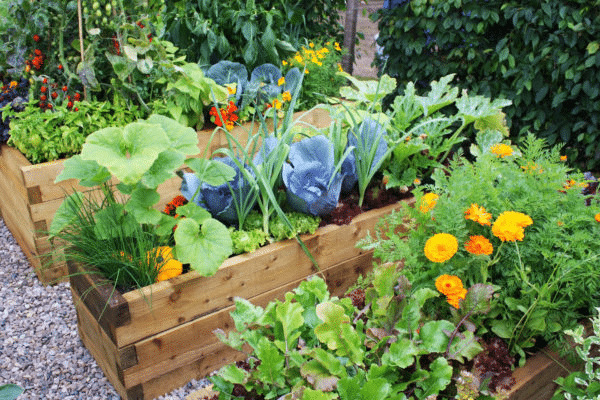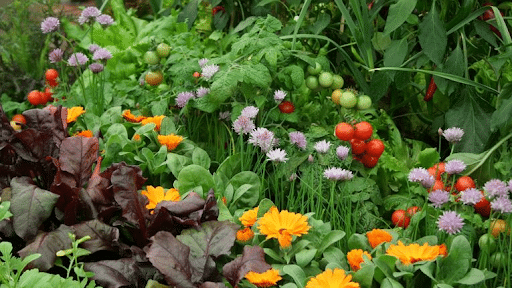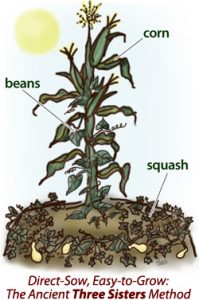
Our Horticulture Supervisor-Erin Dietmeier-is here to help us learn a way to enhance the yield our home veggie gardens can produce!
It takes more than good soil, sun, and nutrients to ensure success in a garden. Time-honored gardening wisdom says that certain plants, when grown together, improve each other’s health and yields. For instance, some plants attract beneficial insects that help to protect a companion, while other plants (particularly herbs) act as repellents. Specific pairings can also save space and help to suppress weeds in the garden.
Native American Three Sisters Planting
This age old grouping involves growing corn, beans and squash – often pumpkin – in the same area. As the corn stalks grow, beans naturally find support by climbing up the stalk. Beans, as all legumes, fix nitrogen in the soil, which supports the large nutritional needs of corn. Squash grows rapidly and the large squash leaves shade out weeds and serve as natural weed block.
Here are 7 Plant Companions For Your Home Vegetable Garden From Our Horticulture Supervisor:

- Planting flowers in your vegetable garden will attract pollinators which will improve melon and squash crop yields.
- African Marigolds repel nematodes that attack vegetable roots.
- Maximize your planting space by growing vining crops, such as cucumbers, around climbing crops, such as pole beans. This will also cut down on the space available for weeds to grow.
- Nasturtiums can be used as a “trap crop” or a sacrificial crop to lure aphids away from your vegetable plants.
- Basil, chives and cilantro act as natural insect repellents. They confuse insects with strong odors that mask the scent of the intended host plants.
- Carrots, dill, parsley, and parsnip attract beneficial insects like praying mantises, ladybugs, and spiders that dine on insect pests.
- Lettuce, radishes, and other quick-growing plants sown between hills of melons or winter squash will mature and be harvested long before these vines need more leg room.
Want more information on Companion Planting? Erin has given us some additional learning materials to help our vegetable garden knowledge grow! Now, go get your veggies some friends and start Companion Planting today!













